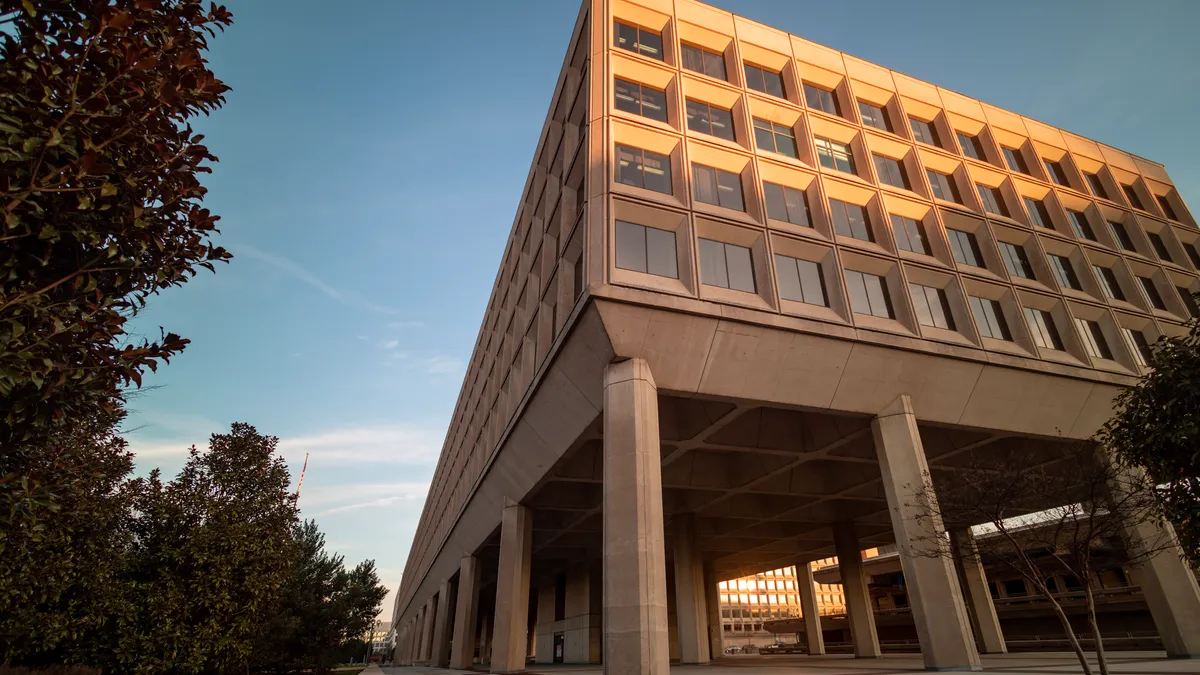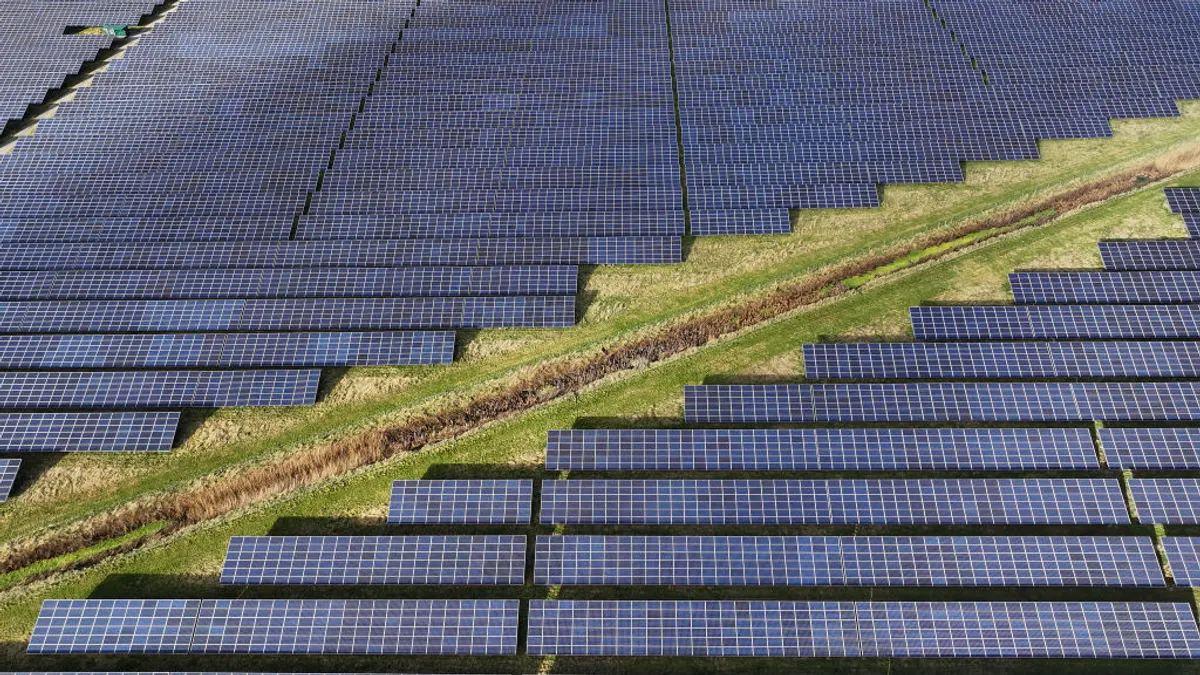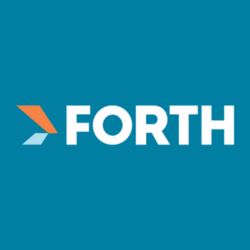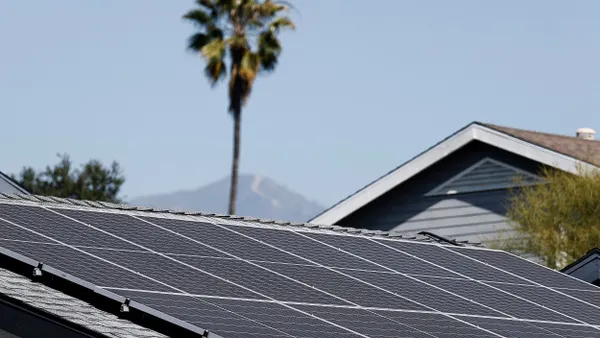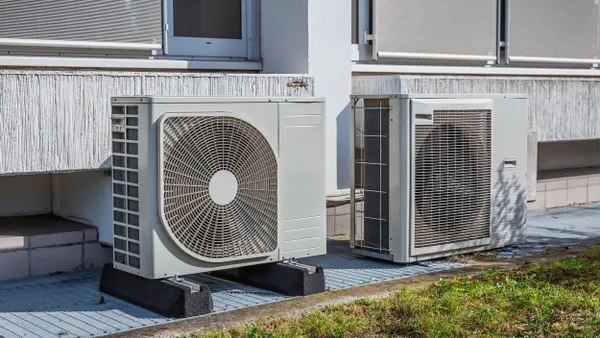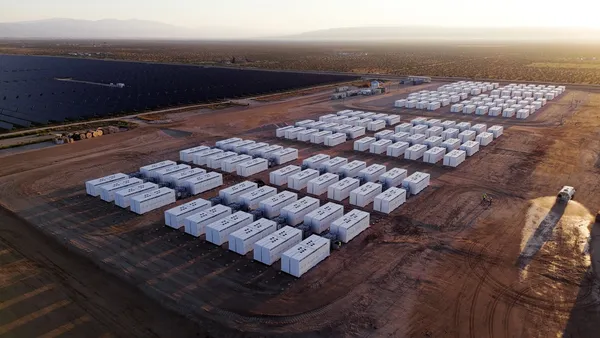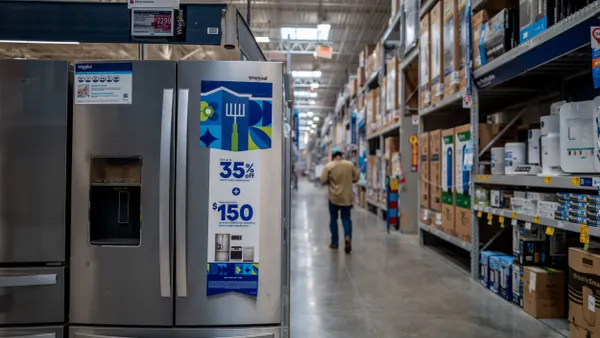Dive Brief:
- The U.S. Department of Energy has announced up to $530 million in technical assistance competitive grants to bolster the adoption of model energy codes, zero energy codes, building performance standards and their equivalents, according to a Dec. 18 press release.
- States and localities can use this funding to coordinate and develop a workforce with the latest building technology skills, including properly installing and operating affordable, healthy buildings and ensuring the delivery of energy efficiency projects needed to decarbonize buildings, the DOE said.
- The new funding opportunity expands the pool of eligible grantees and qualifying activities, with the latter including customized codes and innovative code approaches, such as building performance standards, which have been gaining traction at the local and state levels.
Dive Insight:
If all states updated to the latest model energy codes over the next 30 years, the country could save enough energy to power all U.S. households for a full year, and the equivalent reduction of carbon dioxide emissions would be nearly 2 billion metric tons, the DOE said.
The grants, funded by the Inflation Reduction Act and administered by DOE’s Office of State and Community Energy Programs, are intended to help modernize America’s building stock through state and local action on building codes, lower energy costs and make buildings more resilient to extreme weather events.
The funding opportunity follows an earlier $400 million formula funding release for states and territories. That program allocated grants based on state populations and expected energy savings resulting from code improvements based on square foot calculations for commercial buildings.
Four states and about 11 local jurisdictions have implemented building performance standards, and the federal government’s National Building Performance Standards Coalition continues to expand its membership of municipalities that have expressed an intent to pass BPS in the near future.
The DOE says these funding streams are designed to provide flexibility in response to a range of jurisdictional circumstances to allow grantees to pursue pathways that fit based on their state and local ordinances. Qualifying activities now include the implementation of several categories of building energy codes, including zero energy codes, custom codes, building performance standards and the latest model energy codes — specifically, ASHRAE 90.1-2019 for commercial buildings.
The opportunity will also support states, territories and localities in creating “more inclusive programs that align with President Biden’s Justice40 initiative” while ensuring that nonprofits, industry leaders and states are prepared to create inclusive workforce training initiatives and decarbonize buildings, the DOE said in the release.
Eligible municipalities with the authority to adopt building codes can submit brief concept papers, which are required as part of a full application, by Feb. 9. Full applications are due April 30.



